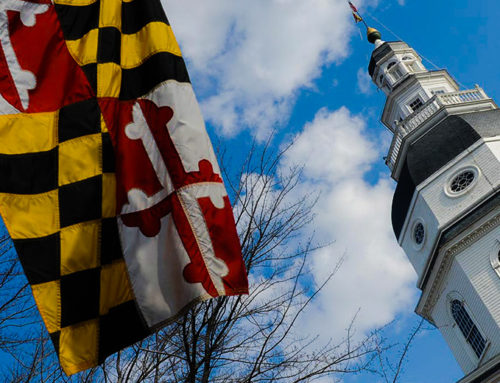View by Topic
Recent Articles
-
NYC Building Electrification Ruling is Interesting But Not a Game ChangerSaturday, March 29th, 2025
-
Greenpeace Ordered to Pay $667M in Blow to ActivismSaturday, March 22nd, 2025
-
The Most Consequential Day of Environmental Deregulation in American HistorySaturday, March 15th, 2025
-
States Challenge Validity of New York’s Climate Change Superfund ActSaturday, March 8th, 2025
-
House Votes to Protect the Hot Water Heater in Your HouseSaturday, March 1st, 2025
View by Month/Year
“Green Building Law Update” Headlines
Recent Articles & News from
Stuart Kaplow’s blog
at GreenBuildingLawUpdate.com
- NYC Building Electrification Ruling is Interesting But Not a Game Changer March 30, 2025
- Greenpeace Ordered to Pay $667M in Legal Blow to Environmental Activism March 23, 2025
- The Most Consequential Day of Environmental Deregulation in American History March 16, 2025
- States Challenge Validity of New York’s Climate Change Superfund Act March 9, 2025
Subscribe to the Green Building Law Update!
Stuart Kaplow brings his expertise and extensive experience to the table with his unique digital publication, "Green Building Law Update". Subscribers receive regular updates to keep them informed about important issues surrounding Environmental Law, Green Building & Real Estate Law, as well as the emerging demand for Environmental Social Governance (ESG).
Get fresh content through the lense of Stuart Kaplow's cutting-edge expertise, innovative commentary and insider perspective. Don't miss another issue! Subscribe below.
After 40 Years Of Wandering U.S. Supreme Court Rules Land Owner’s Taking Claim Is Ripe
In its final decision of the 2000-2001 term, the U.S. Supreme Court ruled 5 to 4 that the case of an owner of 20 acres of Rhode Island waterfront property is ripe for judicial review.
The decision in Palazzolo v. Rhode Island is a substantial victory for land owners burdened by excessive government regulation, who will no longer have to pursue meaningless permitting and applications to ripen a claim against the government.
The Facts
Anthony Palazzolo formed Shore Gardens, Inc. in 1959 to acquire a waterfront parcel in Rhode Island. Tidal wetlands on the property would require considerable fill before significant structures could be built. Beginning in 1961, intermittent applications to develop the property were rejected by various government agencies. After 1966, no applications were submitted for over a decade.
Two intervening events, however, are important. First, in 1971, the State created the Rhode Island Coastal Resources Management Council and charged it with protecting coastal properties. Second, in 1978 Shore Garden’s corporate charter was revoked, and title to the property passed to Anthony Palazzolo as the corporation’s sole shareholder.
In 1983 Palazzolo applied to the State for permission to construct a wooden bulkhead and fill his entire marshland area. The State rejected the application. In 1985 Palazzolo filed a new application with the State, seeking permission to fill 11 of the property’s 18 wetland acres to build a private beach club. The State rejected this application as well. Subsequently, Palazzolo filed an inverse condemnation action in Rhode Island Superior Court, asserting that the State’s wetlands regulations, as applied to his parcel, had taken the property without compensation in violation of the Fifth and Fourteenth Amendments. The suit alleged the State’s action deprived him of “all economically beneficial use” of his property, resulting in a total taking. Under Lucas v. South Carolina Coastal Council, $3,150,000 in damages were sought, a figure derived from an appraiser’s estimate as to the value of a 74-lot residential subdivision on the property. The court ruled against Palazzolo, and the State Supreme Court affirmed.
This Case Is Ripe For Review
Under established case law, a claim for just compensation under the Fifth Amendment challenging application of land-use regulations is not ripe unless the agency charged with implementing the regulations has reached a final decision regarding their application to the property at issue.Williamson County Regional Planning Comm’n v. Hamilton Bank of Johnson City. The U.S. Supreme Court’s Palazzolo decision, with a majority opinion by Justice Kennedy, overturned the ruling by the Supreme Court of Rhode Island and found Palazzolo obtained such a final decision when the State denied his 1983 and 1985 applications. The U.S. Supreme Court found that the State Supreme Court had erred in ruling that, notwithstanding those earlier denials, doubt remained as to the extent of development the State would allow on Palazzolo’s parcel due to his failure to explore other uses for the property that would involve filling less wetlands. Kennedy recognized that, although a landowner may not establish a taking before the land-use authority has the opportunity, using its own reasonable procedures, to decide and explain the reach of a challenged regulation, “once it becomes clear that the permissible uses of the property are known to a reasonable degree of certainty, a takings claim is likely to have ripened.”
The U.S. Supreme Court’s majority found contrary to the State Supreme Court’s ruling, that Palazzolo’s claim is not unripe by virtue of his failure to seek permission for a use of the property that would only involve development of its upland portion.
“Nor is petitioner’s takings claim rendered unripe, as the State Supreme Court held, by his failure to apply for permission to develop the 74-lot subdivision that was the basis for the damages sought in his inverse condemnation suit. It is difficult to see how this concern is relevant to the inquiry at issue here. The Council informed petitioner that he could not fill the wetlands; it follows of necessity that he could not fill and then build 74 single-family dwellings there. Petitioner’s submission of this proposal would not have clarified the extent of development permitted by the wetlands regulations, which is the inquiry required under the Court’s ripeness decisions.”
Regulations Enacted Before Land Acquisition Not A Bar
The majority opinion further overturned a controlling Rhode Island appellate holding that because Palazzolo acquired the property several years after the creation of the Rhode Island Coastal Resources Management Council, he was on notice that there were restrictions on his ability to fill in the wetlands. Consequently, the state court ruled, he had no claim that the wetlands regulations amounted to an unconstitutional “taking” of his property.
In rejecting that previously widely accepted analysis, Justice Kennedy wrote that land use restrictions that are unreasonable “do not become less so through passage of time or title.” More succinctly, the U.S. Supreme Court rejected “the State Supreme Court’s sweeping rule that a purchaser or a successive title holder like petitioner is deemed to have notice of an earlier-enacted restriction and is barred from claiming that it effects a taking.” The justices added, “[f]uture generations, too, have a right to challenge unreasonable limitations on the use and value of land.”
Contracts to purchase undeveloped land should now expressly provide that the purchaser is acquiring the rights of the seller to chalenge the existence or application of existing law or regulation.
Duty To Compensate?
The high court in Palazzolo, did not decide, however, whether the particular restrictions amounted to a taking, remanding that determination to further proceedings in the state courts. The Court accepted that Palazzolo’s position is correct that, assuming a taking is otherwise established, “a State may not evade the duty to compensate on the premise that the landowner is left with a token interest.” Writing for only four justices, however, Kennedy concluded, “[t]his is not the situation in this case, however. A regulation permitting a landowner to build a substantial residence on an 18-acre parcel does not leave the property ‘economically idle’.”
The five-justice majority was not in agreement on that point. Justice O’Connor, noted that the test for a taking of this sort was whether the government had interfered with a landowner’s “reasonable investment-backed expectation,” and whether the owner was on notice of development restrictions should be a factor in that analysis. “The regulatory regime in place at the time the claimant acquires the property at issue helps to shape the reasonableness of those expectations,” she said in a concurring opinion. But in another concurring opinion, Justice Scalia said the fact that a restriction may have existed at the date of acquisition “should have no bearing upon the determination of whether the restriction is so substantial as to constitute a taking.”
Justice Kennedy’s majority opinion, which was also signed by Chief Justice Rehnquist and Justice Thomas, took no position on this debate.
Justice Ginsburg filed a dissenting opinion that Justices Souter and Breyer joined. Justice Stevens also filed a dissenting opinion in which he said there was “no obvious limiting principle” to the majority’s analysis. He said the decision “does raise the spectre of a tremendous – and tremendously capricious – one-time transfer of wealth from society at large to those individuals who happen to hold title to large tracts of land at the moment this legal question is permanently resolved.”
Significance Of The Decision
After 40 years of wandering in the wilderness of Rhode Island wetland regulation following Palazzolo’s 1961 permit application, the U.S. Supreme Court sidestepped an opportunity to deliver the now 80 year old property owner to the Holy Land, but the court did provide a clear path to those who might come later.
The ultimate significance of this decision lies in how inferior courts will apply the majority’s general language about burdensome land use regulation and what weight courts will give to matters of ripeness and the date of acquisition. An important property rights decision, the Palazzolo case is less significant for guidance on what level of regulation rises to a taking, and more significant for guidance on the process and procedure for seeking judicial review of excessive regulation.









